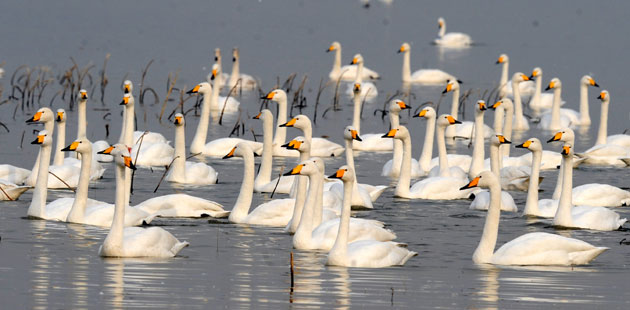Iranian VP threats to close Hormuz Strait
Updated: 2011-12-28 09:22
(Xinhua)
|
|||||||||||
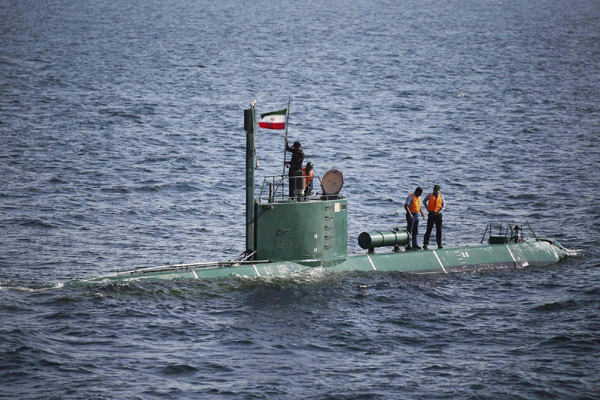 |
|
Military personnel place a flag on a submarine during the Velayat-90 war games by the Iranian navy in the Strait of Hormuz in southern Iran December 27, 2011. [Photo/Agencies] |
TEHRAN - Iran's First Vice President Mohammad-Reza Rahimi said Tuesday that Iran will close the Strait of Hormuz if its oil exports are sanctioned by the West, the official IRNA news agency reported.
If the exports of Iran's oil are sanctioned by the West, no oil drop will pass through the Strait of Hormuz, Rahimi was quoted as saying.
"We are not after hostility. Friendship and brotherhood is our slogan. But, the Westerners do not want to give up their plots (against the Islamic Republic)," he said.
Zohreh Elahian, a senior Iranian lawmaker and member of the parliament's National Security and Foreign Policy Commission said Monday that Iran's ongoing naval war games in its southern waters should be seen as a serious warning to the West about potential closure of the Strait of Hormuz.
"These war games are a warning to the Western countries about the closure of the Strait of Hormuz," Elahian said, adding that "If any threat is posed to Iran, the Islamic Republic is capable of closing the Strait of Hormuz."
The Iranian Navy launched a 10-day massive naval exercise in the international waters on Saturday.
The naval drills, dubbed Velayat 90, cover an area of 2,000 km stretching from the east of the Strait of Hormuz in the Persian Gulf to the Gulf of Aden.
On December 18, Hossein Ebrahimi, the deputy chief of the Iranian parliament's National Security and Foreign Policy Commission, said that Iran will close the Strait of Hormuz if sanctions are imposed on the Iranian oil exports.
Ebrahimi said that if the West impose oil sanctions on the Islamic Republic, Iran will close the Strait of Hormuz and will not allow other countries to export oil through the strategic waterway.
Earlier in the month, Parviz Sorouri, a member of the commission, said that Iran plans to practice its ability to close the Strait of Hormuz, one of the world's most important passages for exports of crude oil and oil products from littoral states of the Persian Gulf.
"Currently, the Middle East region supplies 70 percent of the world's energy needs, (most of) which are transported through the Strait of Hormuz. We will hold an exercise for closing the Strait of Hormuz in the near future," said Sorouri.
"If the world wants to make the region insecure, we will make the world insecure," Sorouri noted.
In response to Sorouri's remarks, Iran's Foreign Ministry spokesman Ramin Mehmanparast said that "As Iran has announced it several times, the issue of closing the Strait of Hormuz is not on Iran's agenda since Iran believes in upholding the stability and peace of the region."
The spokesman said that some people, including lawmakers, are not in the position of reflecting on the official stance of the country, adding that they may have their own personal comments but the stance of Iran is announced through the official channel.
Iran's Navy Commander Rear Admiral Habibollah Sayyari also said Thursday that the naval exercise in Iran's southern waters will manifest Iran's military prowess and defense capabilities in the international waters, convey a message of peace and friendship to regional countries and test the newest military equipment among other objectives.
Sayyari also rejected reports about possible one-day closure of the Strait of Hormuz during the exercise, adding that the Iranian forces are capable of accomplishing such a feat, but such a decision must be made by leaders of the country's establishment.
The West fears that Iran's nuclear program is aimed at developing nuclear weapons but Tehran insists it is for peaceful purposes only.
Relations between Iran and the West have worsened rapidly since October, when the United States accused Iran of backing an assassination plot to kill the Saudi ambassador to Washington.
Soon after, following an International Atomic Energy Agency report on Iran's nuclear program, the United States, Britain and Canada announced new sanctions against Iran.
On November 29, angry Iranian protestors stormed the British embassy in Tehran, which led to the recall of ambassadors by several European countries, including Britain, Germany, France and the Netherlands.
Certain western countries have also said that they are considering sanctions against Iran's Central Bank and Iran's crude exports.
Hot Topics
HIV/AIDS, Egypt protest, Thanksgiving, climate change, global economic recovery, home prices, high-speed railways, school bus safety, Libya situation, Weekly photos
Editor's Picks
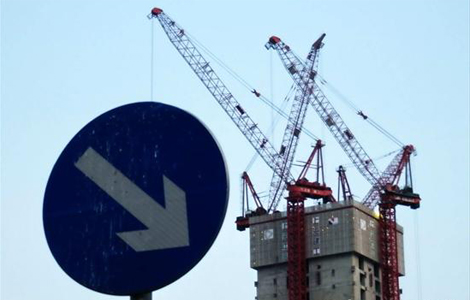
|

|
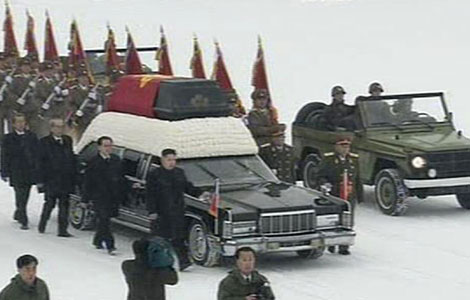
|
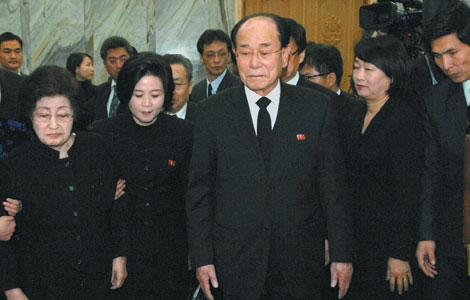
|

|

|




